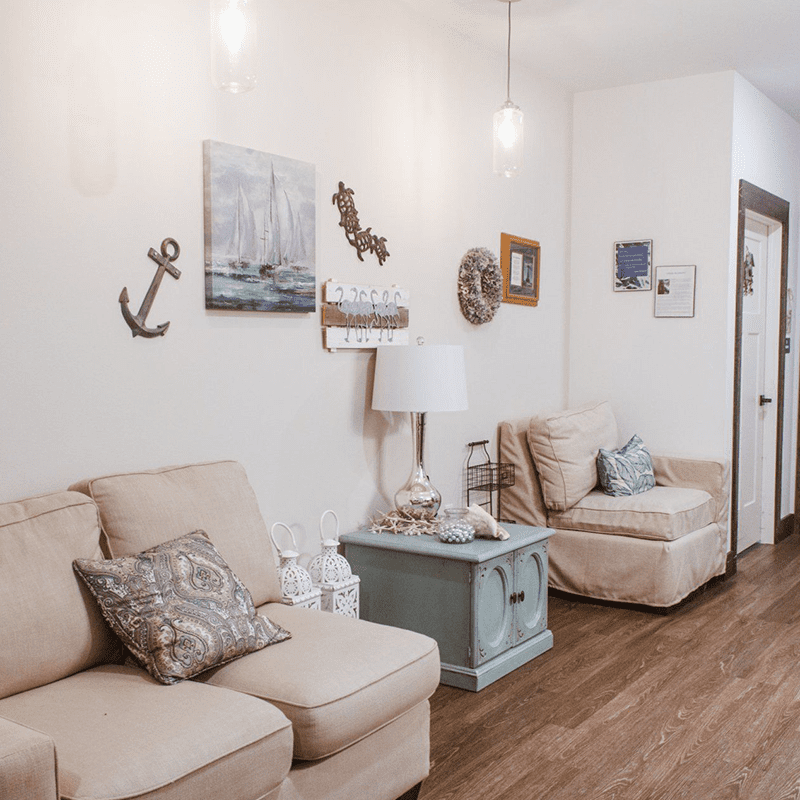You may be exploring different senior care options and wondering about the distinct features of assisted living vs nursing home, the costs, and benefits of assisted living versus nursing homes. Understanding these differences can help you make informed decisions for yourself or a loved one. In this comprehensive guide, you’ll discover the critical aspects of assisted living and nursing homes, including services offered, financial considerations, and care insights tailored to your needs. For more senior care options, check out Senior Care Options: Assisted Living VS Long-Term.
Key Takeaways:
- Differences in Care: Assisted living caters to seniors needing help with daily activities, while nursing homes provide 24/7 medical supervision for those with serious health issues.
- Cost Variations: Assisted living is typically less expensive than nursing homes; assisted living averages $51,600 annually, while nursing homes can reach over $100,000 annually.
- Choosing the Right Facility: Evaluating your needs, visiting potential facilities, and considering factors like location and services offered are imperative steps to finding the best fit.
For more information about the differences between assisted living and nursing homes, contact Lavender Springs Assisted Living in Austin, TX, at 512-858-0211.
Understanding Assisted Living
It’s essential to understand the role of assisted living communities in navigating the complexities of senior care. Designed for seniors who seek a balance between independence and support, these residential settings provide a safe and engaging environment for individuals who may need help with daily tasks but don’t require full-time medical care.
Definition and Purpose
By definition, assisted living offers a long-term housing solution for seniors who require assistance with daily living activities, such as dressing, bathing, and medication management. These communities aim to foster independence while enhancing quality of life through various support services.
Services and Amenities
The services offered in assisted living communities are specifically designed to cater to your needs, ensuring you feel at home. From 24-hour on-site staffing to nutritional meals and transportation to medical appointments, every aspect is tailored to enhance your comfort and well-being.
Assisted living facilities offer a range of amenities, including housekeeping, laundry service, wellness programs, and social activities. At Lavender Springs Assisted Living in Austin, TX, you can enjoy a vibrant community atmosphere with various enrichment programs, building meaningful connections with fellow residents. The goal is to support your independence while offering important assistance, creating a home-like environment where you can thrive.

Services and Amenities
Exploring Nursing Homes
Assuming you are considering long-term care options for yourself or a loved one, understanding nursing homes is vital for making an informed decision. Unlike assisted living facilities, nursing homes provide comprehensive 24-hour medical care for residents with significant health challenges.
Definition and Purpose
The primary aim of a nursing home is to offer a supportive environment for seniors who require extensive medical assistance and supervision. These facilities cater to individuals with chronic illnesses or disabilities, allowing them to receive quality care while maintaining a sense of home.
Services and Medical Care
Before choosing a nursing home, it’s essential to understand the array of services available. These facilities typically offer skilled nursing care, physical therapy, and assistance with daily living activities. Nursing homes can handle medical issues requiring more than primary custodial care.
Consequently, nursing homes ensure personalized care suits your unique healthcare needs. From mobility assistance to specialized therapeutic services, these facilities create a holistic approach to health management. Additionally, with the average annual cost for nursing home care exceeding $93,000, evaluating all services and amenities becomes crucial for an informed choice in your long-term care journey.
Critical Differences Between Assisted Living vs Nursing Home
All residential care facilities cater to seniors but differ significantly in services and living environments. Assisted living focuses on supporting active seniors who need help with daily tasks. At the same time, nursing homes provide comprehensive medical care for those requiring 24-hour supervision. Understanding these differences is vital as you consider your or your loved one’s care options.

Level of Care Provided
Level of Care Provided
You receive help with basic daily activities with assisted living but not around-the-clock medical supervision. In contrast, nursing homes are equipped to handle serious medical issues and chronic conditions, offering complete healthcare services with licensed professionals available 24/7 to cater to your needs.
Resident Demographics
Assisted living typically involves active seniors in good health seeking assistance with daily tasks. Nursing homes, on the other hand, cater to seniors with chronic illnesses or significant medical issues who require constant care and monitoring for their well-being.
Understanding the demographics of both options is crucial for making informed decisions. Assisted living communities attract seniors who value independence but may need occasional support, creating an environment that promotes social interaction and wellness. On the other hand, nursing homes focus on higher care for residents with diminished mobility or chronic conditions, ensuring you receive the medical attention you require while offering a home-like atmosphere. This differentiation allows you to choose the most suitable environment based on your health needs and lifestyle preferences.
Cost Comparison
Unlike assisted living, nursing homes incur higher costs due to the extensive medical care. Here’s a comparison of the two:
| Facility Type | Annual Cost |
| Assisted Living | $51,600 |
| Nursing Home (semi-private room) | $93,075 |
| Nursing Home (private room) | $105,850 |
Financial Breakdown of Assisted Living
Living in an assisted living community offers a manageable cost structure, averaging around $51,600 annually. This cost typically covers rent, meals, housekeeping, and limited health services, allowing for a balance of independence and support tailored to your needs.
Financial Breakdown of Nursing Homes
Nursing homes are the most expensive option, with private rooms costing over $100,000 annually. This investment reflects the continuous medical supervision and specialized care available, ensuring you receive the necessary support for your health conditions.
Assisted living facilities often provide several financial options, including private funds and long-term care insurance. At the same time, nursing homes typically rely on Medicaid for coverage after 100 days of Medicare benefits. Understanding these financial implications can help you make an informed decision about your care options.
Selecting the Right Care Facility
After considering your options, selecting the appropriate care facility requires carefully considering your needs and preferences. Investigate the available environments, such as assisted living or nursing homes, to determine which option best fits your lifestyle and health requirements. Evaluating factors like location, services provided, and resident support will ensure you find a space where you feel comfortable and cared for.
Assessing Individual Needs
After identifying the level of assistance you require, consider your health conditions and daily activities. Consider how much help you need with bathing, dressing, and medication management. This self-assessment will guide you toward a facility that meets your health requirements while promoting independence.
Tips for Researching Facilities
You can effectively evaluate potential care facilities by diving deep into your research. Look for facilities that prioritize resident health, safety, and satisfaction. Here are some tips to guide your search:
- Gather recommendations from healthcare professionals and loved ones.
- Visit multiple facilities to compare environments and services.
- Verify licensing and certifications for quality assurance.
- Read online reviews and testimonials from current residents or families.
- Ask specific questions during your visits to gauge staff responsiveness.
You must ensure the facility aligns with your values and lifestyle preferences.
Assessing different facilities can be overwhelming. Focus on gathering the necessary information to streamline your decision-making process. Utilize the following strategies during your research journey:
- Create a checklist of critical services that matter most to you.
- Schedule tours at various facilities to evaluate their atmosphere.
- Talk to staff and residents for a firsthand perspective.
- Consider the facility’s proximity to family and friends.
- Evaluate the cost implications for your particular needs.
You should make informed decisions based on thorough evaluations and personal requirements.
Regulatory Considerations
Understanding the regulatory landscape for assisted living and nursing homes can help you make safer, more informed choices for yourself or your loved ones. Each type of facility is subject to various regulations to ensure quality care, safety, and compliance with healthcare standards, which can significantly impact your experience and well-being.

Regulatory Considerations
Certification and Licensing
Around the country, both assisted living and nursing home facilities must obtain specific licenses and certifications to operate legally. These requirements vary by state, so checking if a facility has the appropriate credentials is imperative. This can give you peace of mind regarding the quality of care being provided to residents.
State and Federal Regulations
Behind the scenes, state and federal regulations govern assisted living and nursing homes to protect residents. Each facility is subject to routine inspections and must adhere to guidelines covering staffing ratios, safety standards, and the quality of care provided to seniors.
Even though the regulations for assisted living and nursing homes may differ, both facilities must comply with overarching laws that protect resident rights and ensure safety. For instance, nursing homes are regulated more strictly due to the level of medical care provided. According to the Centers for Medicare and Medicaid Services, nursing home residents can receive care from qualified professionals. Therefore, asking about a facility’s compliance with applicable regulations is beneficial when considering care options.
Understanding Assisted Living vs Nursing Home: Essential Insights
So, as you navigate the decision between assisted living and nursing home options, it’s essential to consider the level of care you or your loved one requires, the associated costs, and the types of services offered. Assisted living communities provide a more independent lifestyle with daily assistance. At the same time, nursing homes provide extensive medical care around the clock. For more information on the financial differences, check out this resource on how the costs of assisted living facilities and nursing homes differ. Evaluate your needs carefully to find the best fit.
In conclusion, choosing between assisted living and nursing homes is a significant decision that can greatly impact your quality of life or the life of a loved one. Both options offer unique benefits tailored to different levels of care and independence, so understanding their distinct features is crucial for making an informed choice. Whether you prioritize a more independent lifestyle with supportive services or require comprehensive medical care, senior care options can effectively meet those needs. Don’t hesitate to reach out for guidance about assisted living vs nursing home. If you’re considering these vital choices, contact Lavender Springs Assisted Living in Austin, TX, at 512-858-0211 today. Let us help you find the ideal senior care solution tailored just for you or your loved one!
